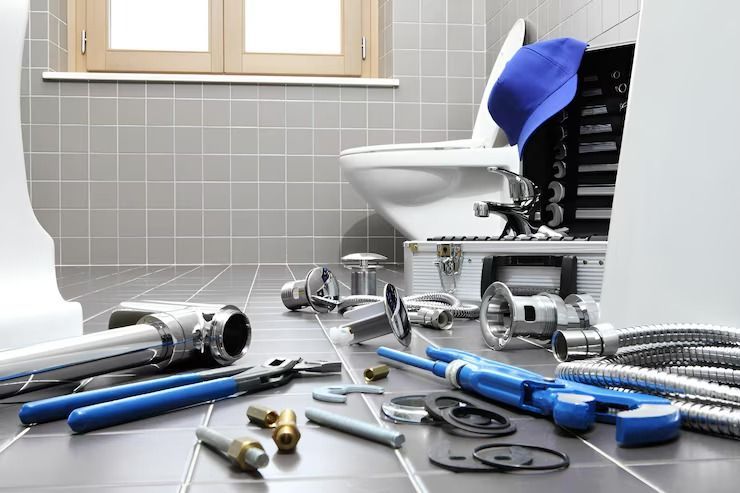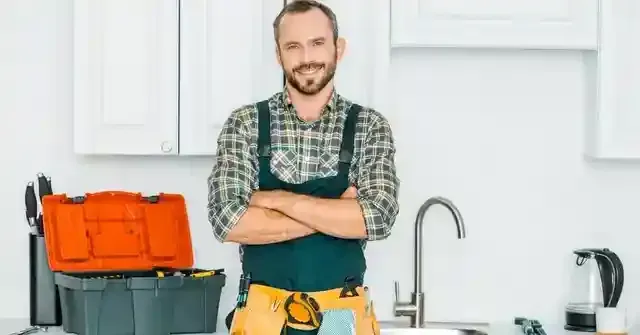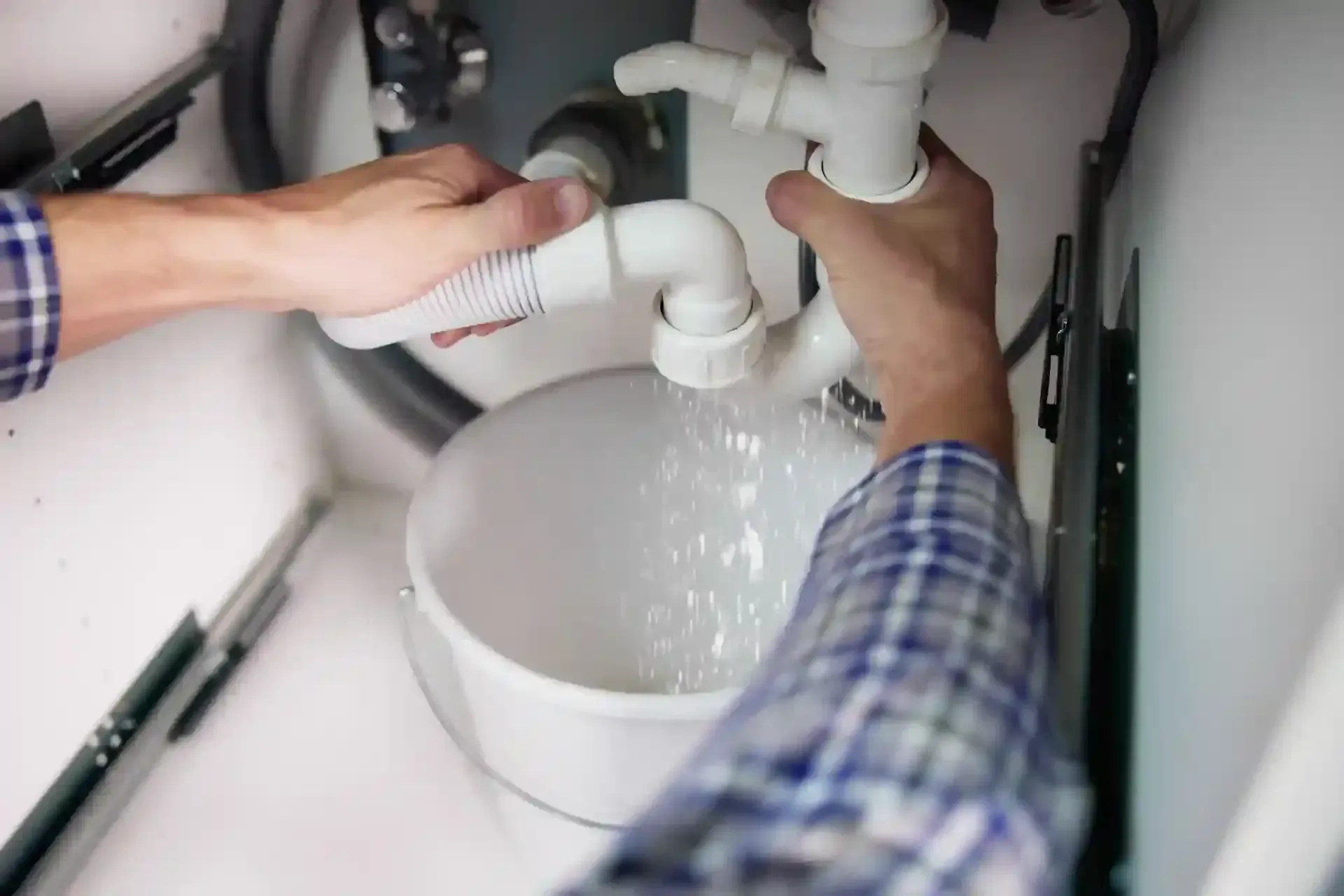How to Identify and Fix Leaky Plumbing Pipes
Leaky plumbing pipes are more than just a minor inconvenience; they can cause severe damage to your home, lead to mold growth, and spike your water bills. Recognizing the signs of a leak early on is essential to avoiding costly repairs and water damage. From damp walls and ceilings to the sound of running water when nothing is turned on, identifying the source of the leak can prevent further complications and reduce repair costs.
In this article, we’ll explore the common causes of plumbing leaks and provide you with step-by-step instructions on how to identify and fix them. Whether you’re dealing with a slow drip or a more significant issue, addressing leaks quickly is crucial to maintaining the integrity of your home’s plumbing system. With the right tools and knowledge, you can take charge of your plumbing and keep your home safe and dry.

Common Signs of Leaky Plumbing Pipes You Should Watch For
Leaky plumbing pipes often start with subtle signs that can easily be overlooked. One of the most common indicators is water stains or dampness on walls, ceilings, or floors. These signs suggest that a leak is hidden behind the surface, potentially causing structural damage over time. Another sign to watch for is increased water bills despite no change in usage. This could be a direct result of water escaping through a leak.
In addition to visible dampness, the sound of water running even when no faucets are turned on could indicate a hidden leak. If you notice any of these signs, it's crucial to act quickly and find the source of the problem before the damage worsens. Early detection can save you from expensive repairs and prevent further water damage to your home’s infrastructure.
How to Locate the Source of a Leak in Your Pipes
Locating a plumbing leak can be challenging, but it’s crucial to stop the flow of water as soon as possible. Start by inspecting the areas where you’ve noticed dampness or water stains, as this is often where the leak is most likely to be. If the leak isn't visible, you may need to check beneath sinks, behind appliances, or under floors. Using a flashlight, carefully examine pipes for any signs of moisture or mineral deposits, which can point to a leak.
In some cases, the source of a leak can be hidden deep within your plumbing system. If you can't find it with a visual inspection, a professional plumber may need to perform leak detection using specialized equipment such as thermal cameras or pressure testing. Identifying the exact source is essential for effective repairs.
How to Fix a Minor Leak in Plumbing Pipes Yourself
If the leak is small, you might be able to fix it yourself without calling a plumber. Start by turning off the water supply to prevent further damage. For a simple fix, you can apply pipe tape or sealant around the area of the leak. These products are available at most hardware stores and are designed to temporarily seal small leaks in pipes.
Once you've sealed the leak, you should replace the damaged pipe section or joint as soon as possible to avoid future leaks. Keep in mind that while DIY fixes can work for minor leaks, it's always best to consult a professional plumber for more significant issues to ensure the repair is done properly and safely.
What Tools You Need to Fix Plumbing Pipe Leaks
Fixing a leaky plumbing pipe requires the right tools to ensure that the job is done safely and effectively. Essential tools include a pipe wrench, adjustable pliers, pipe cutters, and a utility knife. You may also need pipe sealant, Teflon tape, and a plumbing tape wrap for sealing joints and cracks.
Before starting any repair, make sure you have the appropriate tools for the type of pipe you’re working with. Copper, PVC, and steel pipes may require different types of fittings and repair materials. Having the right tools on hand will make the process easier and ensure a secure, long-lasting fix.
When to Call a Professional Plumber for a Leaky Pipe
Not all leaky pipes are fixable with a DIY approach. In some cases, the damage may be too extensive or located in hard-to-reach areas. If you’ve noticed signs of a serious leak, such as a sudden drop in water pressure, damp or flooded areas, or if your DIY repair didn’t work, it’s time to call a professional plumber.
A qualified plumber has the expertise and specialized tools to locate and fix complex plumbing issues safely. They can perform a detailed inspection, identify the root cause of the problem, and offer lasting solutions to prevent future leaks. Hiring a plumber ensures that your home remains safe from water damage while resolving the issue effectively.
The Impact of Leaky Plumbing Pipes on Your Home and Health
Leaky plumbing pipes can do more than just waste water and raise your utility bills. Over time, they can cause significant damage to your home’s structure, promoting the growth of mold and mildew. Moisture in hidden areas can lead to wood rot and weaken drywall, flooring, and insulation.
In addition to structural damage, leaky pipes can also affect your health. Mold growth caused by damp conditions can trigger respiratory issues, allergies, and asthma. Keeping your plumbing system in good condition is vital for both the safety of your home and the well-being of your family. Identifying and fixing leaks quickly will help avoid these risks.
The Cost of Ignoring a Leaky Plumbing Pipe in Your Home
While a small plumbing leak may seem insignificant, ignoring it can lead to costly long-term consequences. If left unchecked, a minor leak can escalate into a major plumbing emergency, resulting in extensive water damage to walls, floors, and ceilings. The cost of repairing water damage, replacing insulation, and fixing mold growth can quickly add up.
Additionally, water leaks contribute to higher water bills. Even a small, unnoticed leak can waste gallons of water each day, causing unnecessary expenses. The sooner you identify and fix a leak, the more money you’ll save on repairs and utilities, preventing the issue from growing into something much more expensive.
How to Prevent Leaks and Maintain Your Plumbing System
Preventing plumbing leaks is all about regular maintenance and being proactive. Start by inspecting your plumbing system annually. Look for signs of wear and tear, such as rusted pipes, deteriorating seals, and loose fittings. Additionally, check water pressure regularly, as high pressure can put unnecessary strain on pipes and cause leaks.
Proper insulation of pipes can also prevent freezing during the winter months, which is a common cause of leaks. If you notice any issues during your inspection, address them promptly before they become major problems. Taking preventive steps will help extend the lifespan of your plumbing system and reduce the risk of costly repairs in the future.
How Weather Conditions Affect Plumbing Pipes and Lead to Leaks
Plumbing pipes are vulnerable to extreme weather conditions, especially freezing temperatures and excessive heat. In the winter, water inside pipes can freeze and expand, causing them to burst. These types of leaks can result in severe water damage and costly repairs. Similarly, extreme heat can cause pipes to expand and crack, especially if they’re already weakened.
To protect your plumbing system from weather-related issues, insulate pipes in vulnerable areas, such as basements, crawlspaces, and outdoor faucets. During cold spells, let your faucets drip to keep water flowing and prevent freezing. By understanding how weather affects your plumbing, you can take steps to protect your home year-round.
Conclusion
Identifying and fixing leaky plumbing pipes is crucial to maintaining the efficiency and integrity of your home’s plumbing system. Regularly checking for signs of leaks, such as water stains, increased water bills, or unusual sounds from pipes, can help you catch problems early. If you notice any of these signs, addressing the issue promptly can prevent more extensive damage, saving you time and money. Whether it’s a minor drip or a significant burst, taking the right steps to repair plumbing leaks ensures that your home remains dry, safe, and functional.
For professional assistance with leaky plumbing pipes, don't hesitate to contact On Point Plumbing & Heating. Our team of experienced plumbers in North Wales, PA, is ready to provide timely, reliable repairs. Call us today at (267) 638-7151 to schedule a consultation or request emergency plumbing services. We're here to help keep your plumbing system in top condition!
You might also like
Why Plumbing is a Good Career: From Training to Success




